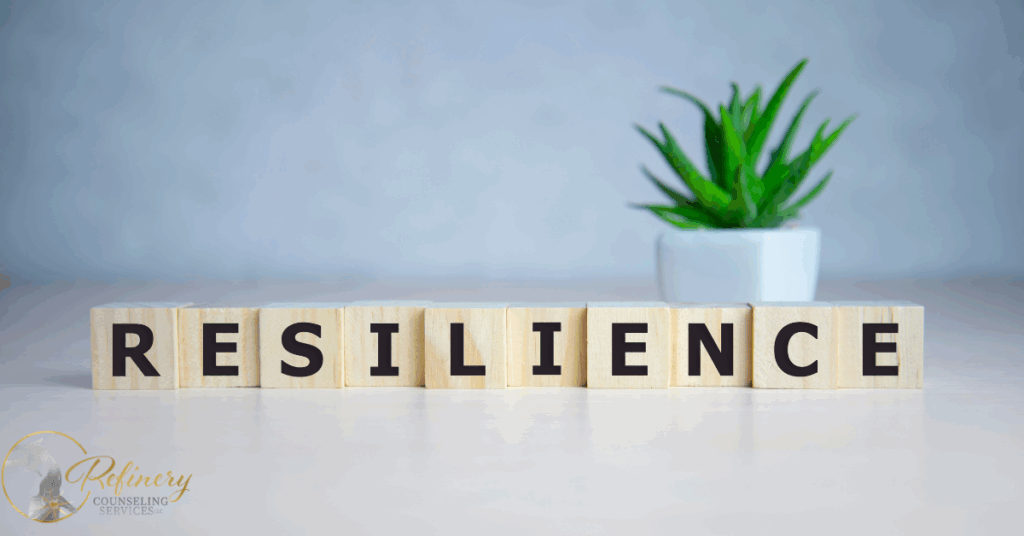Emotional resilience is the ability to adapt to stress, adversity, trauma, or tragedy and bounce back stronger. For men, building emotional resilience is not just about “toughing it out” or suppressing feelings. It’s about developing tools that support mental well-being, emotional intelligence, and authentic strength. In a society where masculinity is often equated with stoicism, many men feel pressured to hide pain, push through burnout, or avoid emotional vulnerability. But true resilience comes from learning how to cope, connect, and care for yourself—inside and out.
In honor of Men’s Mental Health Month, this guide offers practical, compassionate strategies to help men develop emotional resilience and create a life of strength, stability, and self-awareness.
Understanding the Myths That Undermine Resilience
One of the first steps in building resilience is unlearning the myths that sabotage it. Culturally, men are often socialized to believe that asking for help is weakness, that emotions are distractions, and that handling things alone is honorable. These myths are not only harmful, but they also prevent healing and healthy relationships.
Resilience is not:
- Suppressing emotions until they erupt
- Bearing burdens alone
- Pushing through mental or emotional pain without support
Resilience is:
- Facing challenges with honesty and vulnerability
- Seeking support when you need it
- Regulating emotions in ways that protect your energy and peace
Strength in Awareness: Recognizing Your Emotional Patterns
You can’t build what you don’t first understand. Emotional resilience starts with awareness. Take time to reflect:
- What emotions come up most when you’re under stress?
- Do you tend to withdraw, lash out, or numb out?
- Where in your body do you feel tension or anxiety?
Learning to identify your emotional patterns helps you make more mindful choices rather than reacting impulsively. Journaling, therapy, or using mood-tracking apps can support this process.
Building Connection: You Don’t Have to Do This Alone
Isolation weakens resilience, while connection strengthens it. Men often face unique challenges in building emotional support systems, but community is vital.
Ways to foster connection:
- Talk to someone you trust. A friend, partner, or mentor who listens without judgment can be a lifeline.
- Seek professional support. Therapy is not just for crises—it’s a tool for personal growth, clarity, and emotional strength. [Therapy Is Not Just for Crises] explores why investing in your mental health early matters.
- Join peer groups. Veteran groups, men’s circles, or faith-based support groups provide spaces where shared experience breeds resilience.
Habits That Strengthen Emotional Resilience
Resilience is a muscle that builds through consistent, supportive practices. Here are key habits to integrate:
1. Emotional Check-Ins
Spend five minutes a day checking in with how you feel. Labeling your emotions reduces their intensity and helps you stay grounded.
2. Physical Wellness
Exercise, sleep, and nutrition have a direct impact on your emotional regulation. Movement especially helps release built-up stress and tension.
3. Stress Management Tools
Breathing techniques, mindfulness, and grounding exercises are powerful ways to reset your nervous system during high stress.
4. Boundaries and Balance
Protect your peace. Whether it’s setting limits at work or saying no to toxic dynamics, boundaries are not selfish—they’re essential.
Explore [Mental Health at Work: Tools for Stress, Burnout, and Boundaries] for guidance on setting healthy limits and reclaiming time.
Faith, Identity, and Emotional Growth
For men of faith, emotional resilience can be deeply spiritual. Emotional pain is not a sign of weak faith—it’s an opportunity to lean on your beliefs, your community, and your Creator.
Consider integrating:
- Prayer or meditation to process emotion
- Scripture or spiritual texts that speak to strength through struggle
- Faith-based counseling for healing that honors your values
Supporting the Men in Your Life
Whether you are a partner, family member, or friend, you play a vital role in helping the men you love build resilience.
- Listen without fixing. Sometimes, the best support is presence.
- Affirm emotional expression. Let the men in your life know their feelings are valid.
- Encourage help-seeking. Normalize therapy and emotional care as forms of strength.
Final Thoughts: Resilience Is Within Reach
Emotional resilience is not a trait you’re born with—it’s a set of skills you can learn and strengthen. The work of healing, growing, and showing up fully in your life isn’t easy, but it is profoundly worthwhile.
To every man reading this: You are not alone. You don’t have to carry it all in silence. You are worthy of support, worthy of rest, and worthy of peace.
Let this Men’s Mental Health Month be the beginning of a new chapter—one where your emotional well-being is a priority, not an afterthought. We’re here to walk with you.

